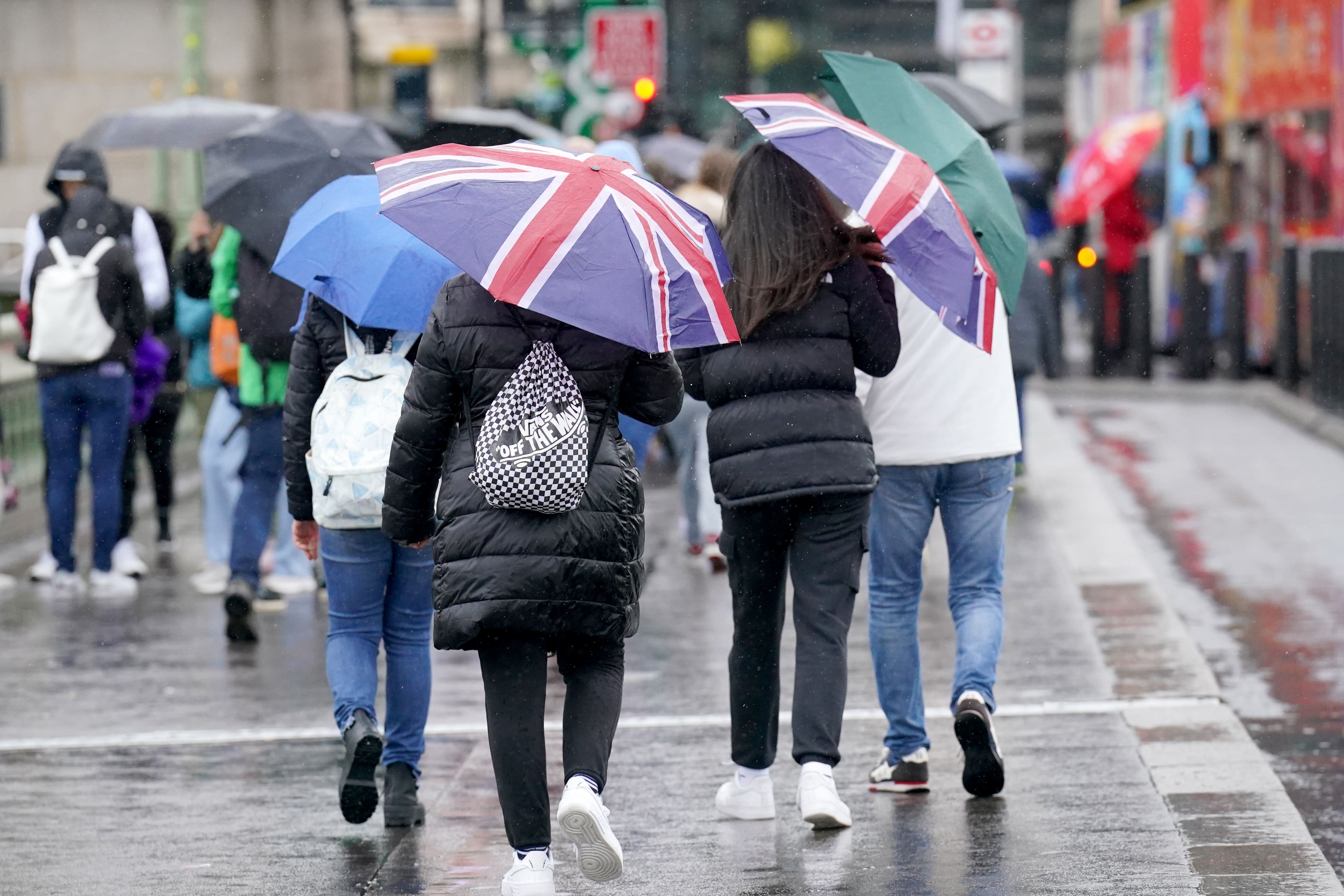UK economy at risk of recession after surprise third quarter decline
Gross domestic product (GDP) fell by a revised 0.1% against the zero growth initially estimated, official figures showed.

Your support helps us to tell the story
From reproductive rights to climate change to Big Tech, The Independent is on the ground when the story is developing. Whether it's investigating the financials of Elon Musk's pro-Trump PAC or producing our latest documentary, 'The A Word', which shines a light on the American women fighting for reproductive rights, we know how important it is to parse out the facts from the messaging.
At such a critical moment in US history, we need reporters on the ground. Your donation allows us to keep sending journalists to speak to both sides of the story.
The Independent is trusted by Americans across the entire political spectrum. And unlike many other quality news outlets, we choose not to lock Americans out of our reporting and analysis with paywalls. We believe quality journalism should be available to everyone, paid for by those who can afford it.
Your support makes all the difference.The UK is at risk of falling into a recession after revised official figures show the economy declined between July and September.
Gross domestic product (GDP) fell by a revised 0.1% against the zero growth initially estimated, the Office for National Statistics (ONS) said.
It also flatlined during the second quarter of the year, after prior estimates showed 0.2% growth, painting a bleaker picture for the overall economy.
The changed figures come after the ONS said GDP declined by 0.3% during October, a worse reading than economists had predicted.
If GDP contracts between October and December then the economy will have entered a technical recession, which can be defined as two consecutive quarters of negative growth.
Industries including film production, engineering and design and telecommunications showed a weaker performance during the third quarter than statisticians initially thought.
Darren Morgan, director of economic statistics at the ONS, said: “The latest data from both our regular monthly business survey and VAT returns show the economy performed slightly less well in the last two quarters than our initial estimates.
“The broader picture, though, remains one of an economy that has been little changed over the last year.”
Chancellor Jeremy Hunt said the economic outlook should not be dampened by the worse-than-expected figures.
He said: “The medium-term outlook for the UK economy is far more optimistic than these numbers suggest.
“We’ve seen inflation fall again this week, and the OBR (Office for Budget Responsibility) expects the measures in the autumn statement, including the largest business tax cut in modern British history and tax cuts for 29 million working people, will deliver the largest boost to potential growth on record.”
Prime Minister Riski Sunak had pledged at the start of 2023 to “grow the economy”.
Labour shadow chancellor Rachel Reeves said the revised GDP figures show he has failed to meet his promise.
She said: “Rishi Sunak is a Prime Minister whose legacy is one of failure. He failed to beat Liz Truss, he failed to cut waiting lists, he failed to stop the boats and now he has failed to grow the economy.
“Thirteen years of economic failure under the Conservatives have left working people worse off with higher bills, higher mortgages and higher prices in the shops.”
Richard Carter, head of fixed interest research at Quilter Cheviot, said: “Growth is weakening and interest rates are really beginning to bite, and while a recession has just been avoided to date, there is no guarantee one will be avoided in 2024.”
He added that “Rishi Sunak’s pledge to grow the economy is now severely in doubt”.
However, Ellie Henderson, an economist at Investec Economics, pointed out that while a winter recession is now more probable, it is a “matter of semantics”.
This is because to two decimal places, GDP was shown to have contracted by 0.03% over the third quarter in the previous estimates.
“The story remains that economic growth has been subdued,” Ms Henderson said.
A worse-than-expected performance this year should be balanced by a better outlook for 2024 and 2025
Martin Beck, chief economic adviser to the EY Item Club, said: “October’s decline in GDP, the growing drag from past rises in interest rates, and industrial action holding back activity in some sectors mean the economy in the fourth quarter is likely to flatline at best, with a technical recession a serious possibility.
“However, prospects for 2024 are improving. Inflation is falling faster than had been expected and declines in wholesale gas prices point to a cut in energy bills in the spring, implying a better consumer outlook.
“So, a worse-than-expected performance this year should be balanced by a better outlook for 2024 and 2025.”
UK Consumer Prices Index inflation fell to 3.9% in November, its lowest level for more than two years and driven by a fall in fuel prices.